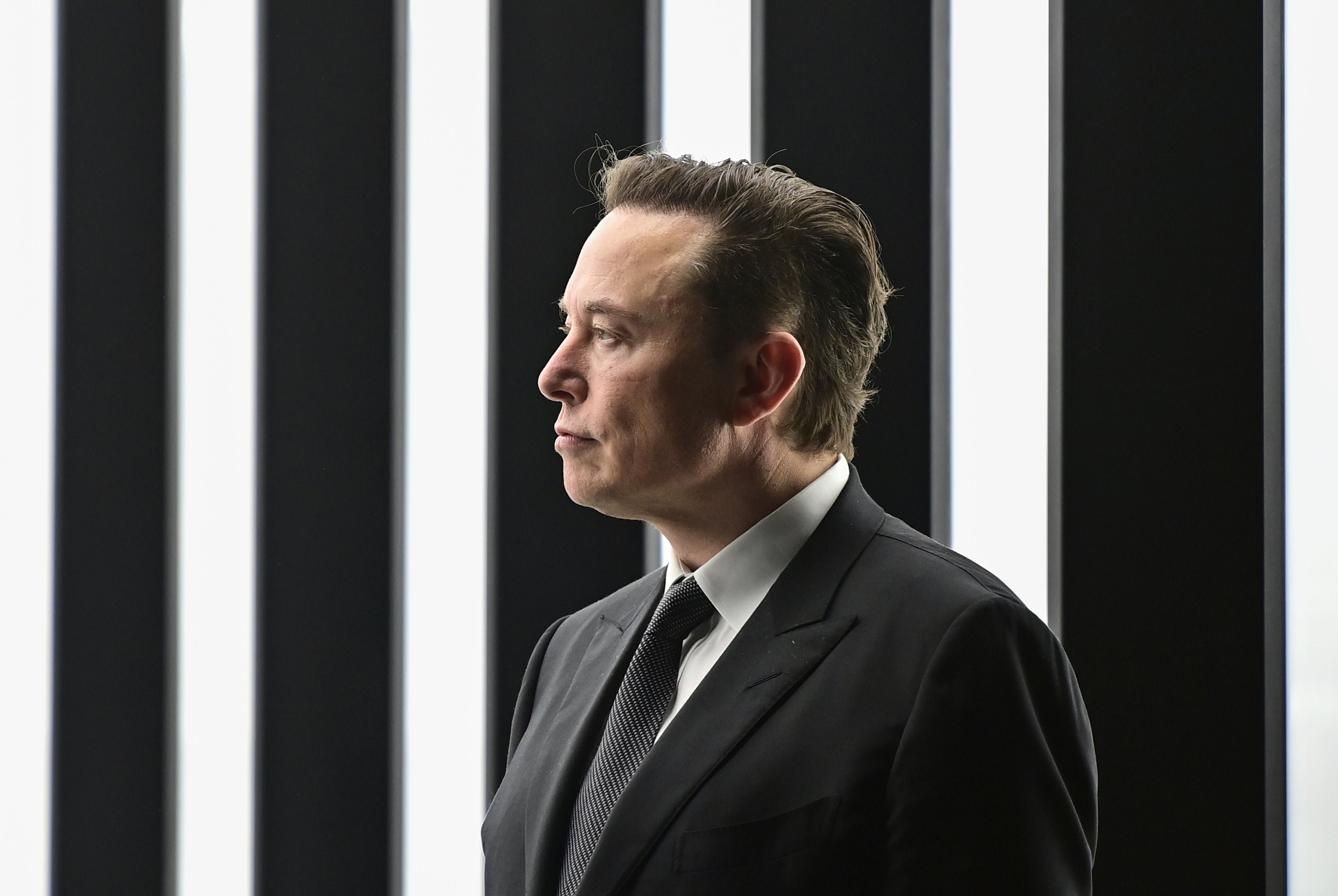Official: Musk seeks US funding of Ukraine satellite network
A senior U.S. officials says the Defense Department has gotten a request from SpaceX and Tesla founder Elon Musk to take over funding for his satellite network that has provided crucial battlefield communications for Ukrainian military forces during the war with Russia

Your support helps us to tell the story
From reproductive rights to climate change to Big Tech, The Independent is on the ground when the story is developing. Whether it's investigating the financials of Elon Musk's pro-Trump PAC or producing our latest documentary, 'The A Word', which shines a light on the American women fighting for reproductive rights, we know how important it is to parse out the facts from the messaging.
At such a critical moment in US history, we need reporters on the ground. Your donation allows us to keep sending journalists to speak to both sides of the story.
The Independent is trusted by Americans across the entire political spectrum. And unlike many other quality news outlets, we choose not to lock Americans out of our reporting and analysis with paywalls. We believe quality journalism should be available to everyone, paid for by those who can afford it.
Your support makes all the difference.The Defense Department has gotten a request from SpaceX and Tesla founder Elon Musk to take over funding for his satellite network that has provided crucial battlefield communications for Ukrainian military forces during the war with Russia, a U.S. official said.
The official, who spoke on condition of anonymity to discuss a sensitive matter not yet made public, said the issue has been discussed in meetings and senior leaders are weighing the matter. There have been no decisions.
Musk's Starlink system of more than 2,200 low-orbiting satellites has provided broadband internet to more than 150,000 Ukrainian ground stations. Early Friday, Musk tweeted that it was costing SpaceX $20 million a month to support Ukraine’s communications needs.
In addition to the terminals, he tweeted that the company has to create, launch, maintain and replenish satellites and ground stations.
CNN was the first to report the Musk request.
The request from the world's richest man to have the Pentagon take over the hundreds of millions of dollars he says the system is costing comes on the heels of a Twitter war between Musk and Ukrainian President Volodymyr Zelenskyy. And in tweets overnight Musk referred to the friction, suggesting it may affect his decision to end his company's largesse in funding the systems.
In a Twitter exchange last week, Musk argued that to reach peace Russia should be allowed to keep the Crimea Peninsula, which it seized in 2014. He also said Ukraine should adopt a neutral status, dropping a bid to join NATO.
Musk also started a Twitter poll asking whether “the will of the people” should decide if seized regions remain part of Ukraine or become part of Russia.
In a sarcastic response, Zelenskyy posted a Twitter poll of his own asking “which Elon Musk do you like more?”: “One who supports Ukraine” or “One who supports Russia.” Musk replied to Zelenskyy that “I still very much support Ukraine, but am convinced that massive escalation of the war will cause great harm to Ukraine and possibly the world.”
Andrij Melnyk, the outgoing Ukrainian ambassador to Germany, responded to Musk’s original tweet with an obscenity.
Musk’s request that the Pentagon begin to pick up the tab comes as the Space Force and Pentagon have been looking at how commercial vendors will play a role in national security.
In March, commander of U.S. Space Command Army Gen. James Dickinson said that having many vendors providing needed capabilities, such as Maxar’s satellite imagery of stalled Russian convoys, has become essential, because it frees up limited military satellite assets to focus on other things.
In his tweets, Musk also raised a question that various vendors and the Pentagon are considering as space becomes a more critical part of wartime operations: If a commercial vendor is assisting the U.S. and is targeted, does the U.S. owe it protection?
“We’ve also had to defend against cyberattacks & jamming, which are getting harder,” Musk tweeted.